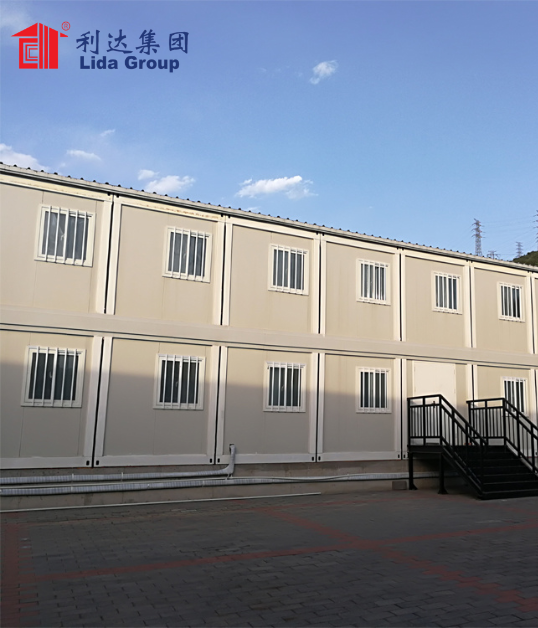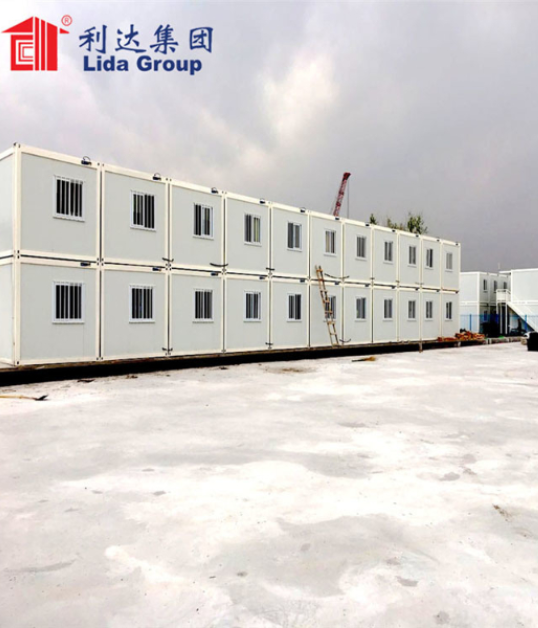Introduction
In the realm of construction, efficient space utilization is a key factor in creating functional and sustainable buildings. Lida Group, a renowned provider of modular construction solutions, has made significant strides in space optimization through their smart container building designs. By harnessing innovative technologies and design principles, Lida Group has revolutionized the way containers are utilized, maximizing the potential of limited space. In this article, we will explore the features, benefits, and applications of Lida Group’s smart container building designs, highlighting their contribution to the field of space optimization in construction.
The Importance of Space Optimization
Space optimization is crucial in architecture and construction for several reasons:
- Efficient Resource Utilization: Optimizing space ensures that available resources, such as land, materials, and energy, are used efficiently. By making the most of limited space, construction projects can minimize waste and reduce environmental impact.
- Cost-Effectiveness: Utilizing space effectively leads to cost savings. Efficiently designed buildings require fewer materials, resulting in reduced construction costs. Additionally, smart space utilization can lead to energy savings and lower operational expenses in the long run.
- Functionality and User Experience: Well-designed spaces enhance functionality and user experience. By optimizing space, buildings can accommodate various activities and provide a comfortable and pleasant environment for occupants.
Features of Lida Group’s Smart Container Building Designs
Lida Group’s smart container building designs incorporate several features that maximize space utilization and promote efficient construction:
- Intelligent Design: Lida Group employs intelligent design principles to make the most of available space. By analyzing the specific requirements of a project, Lida Group’s design team develops innovative solutions that optimize the layout, flow, and functionality of the building. Intelligent design ensures that every square inch is utilized effectively, making the building efficient and user-friendly.
- Vertical Expansion: Lida Group’s container building designs often incorporate vertical expansion. By stacking containers, additional levels can be added, effectively multiplying the available floor area without increasing the building’s footprint. Vertical expansion is particularly advantageous in urban areas with limited space, allowing for increased density without sacrificing functionality.
- Interior Configurations: Lida Group’s smart container designs focus on flexible interior configurations. Containers can be easily modified and adapted to create multifunctional spaces that can serve different purposes. This adaptability allows for efficient use of space, as rooms can be reconfigured as needed, maximizing their utility.
- Integrated Storage Solutions: Storage is a critical aspect of space optimization. Lida Group’s container building designs incorporate integrated storage solutions, utilizing every nook and cranny efficiently. By incorporating built-in cabinets, shelves, and storage compartments, the designs minimize clutter and provide ample storage space, ensuring a clean and organized environment.
- Smart Technologies: Lida Group embraces smart technologies to further enhance space optimization. Incorporating features such as automated lighting systems, smart climate control, and space-saving furniture, these designs maximize comfort and functionality while minimizing the physical footprint of these elements.
Benefits of Smart Container Building Designs
Lida Group’s smart container building designs offer several benefits that make them an attractive choice for space optimization:
- Efficient Space Utilization: The primary advantage of Lida Group’s smart container building designs is efficient space utilization. By employing intelligent design principles and innovative technologies, these designs maximize the available space, ensuring that every square foot is used effectively. This efficiency allows for the creation of compact yet functional buildings.
- Cost Savings: Space optimization directly translates into cost savings. By using space more efficiently, construction projects require fewer materials and resources, resulting in reduced construction costs. Additionally, optimized spaces often require less energy for heating, cooling, and lighting, leading to long-term operational cost savings.
- Sustainability: Efficient space utilization aligns with sustainable construction practices. By reducing the physical footprint of buildings, smart container designs minimize land consumption, leaving more space for green areas and preserving natural habitats. Furthermore, optimized spaces can incorporate energy-efficient systems and technologies, reducing the environmental impact of the building throughout its lifecycle.
- Improved Functionality: Smart container building designs prioritize functionality. By maximizing space utilization, these designs create buildings that can accommodate a range of activities and functions. Whether it is residential, commercial, or institutional, optimized spaces provide the necessary flexibility to meet diverse requirements and enhance the overall user experience.
- Time Efficiency: Optimized spaces often lead to quicker construction timelines. With well-thought-out designs and efficient use of materials, the construction process can proceed smoothly, reducing project delays. Additionally, the modular nature of container building designs allows for parallel construction activities, further expediting the overall construction process.
Applications of Smart Container Building Designs
Lida Group’s smart container building designs find applications in various sectors and contexts:
- Compact Living: With the global population increasing and urban areas becoming more crowded, compact living solutions are gaining popularity. Lida Group’s smart container designs offer efficient and well-designed living spaces for urban dwellers, including apartments, micro-housing units, and student accommodations. These designs optimize space while providing allthe necessary amenities for comfortable living.
- Commercial Spaces: Smart container building designs are ideal for commercial purposes, such as retail stores, pop-up shops, and cafes. The compact yet functional layouts allow businesses to operate in busy urban areas where space is limited. The modular nature of container designs also enables easy customization and quick deployment, making them an attractive option for temporary or mobile commercial spaces.
- Educational Facilities: Container buildings are increasingly being used for educational purposes, such as schools, training centers, and classrooms. Lida Group’s smart container designs provide flexible and adaptable spaces that can accommodate changing educational needs. These designs allow for quick expansion or reconfiguration as student populations fluctuate or curriculum requirements evolve.
- Healthcare Facilities: Smart container building designs have found applications in the healthcare sector, offering solutions for clinics, diagnostic centers, and emergency medical facilities. These designs optimize space to ensure efficient patient flow, while also incorporating necessary medical equipment and storage areas. The modular nature of container buildings allows for easy scalability and the ability to quickly respond to changing healthcare demands.
- Disaster Relief and Temporary Housing: In emergency situations or disaster-stricken areas, quick and efficient housing solutions are essential. Lida Group’s smart container designs can be rapidly deployed as temporary shelters, providing secure and comfortable living spaces for those affected by natural disasters or humanitarian crises. The adaptability and mobility of container buildings make them an ideal choice for temporary housing solutions.
Conclusion
Lida Group’s smart container building designs exemplify the potential of space optimization in construction. By utilizing intelligent design principles, vertical expansion, flexible interior configurations, integrated storage solutions, and smart technologies, these designs maximize the efficiency and functionality of limited spaces. The benefits of these designs include cost savings, sustainability, improved functionality, and time efficiency. From compact living and commercial spaces to educational facilities and healthcare solutions, smart container building designs find applications in various sectors, catering to diverse needs and contexts. As the demand for efficient and sustainable construction practices continues to grow, Lida Group’s innovative approach to space optimization sets a new standard in the field of modular construction.
Post time: Apr-26-2024


